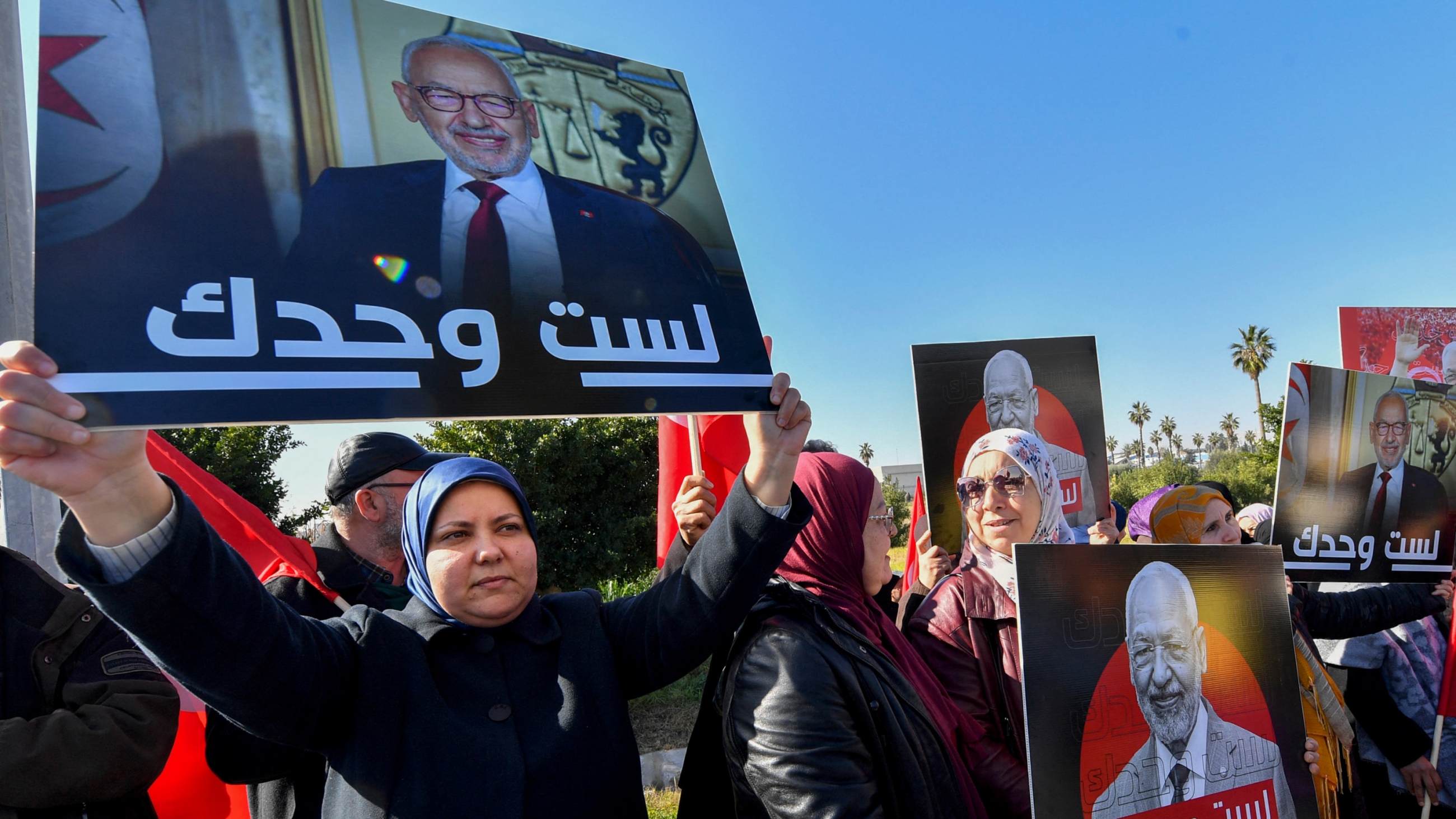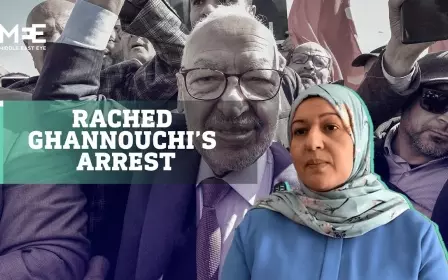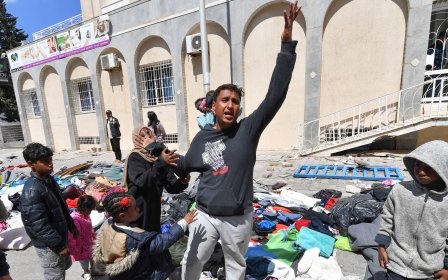Tunisia's Ghannouchi boycotts interrogation sessions in protest against detention

Rached Ghannouchi, the leader of Tunisia's largest party Ennahda, has decided to boycott investigation sessions after being taken from prison to a national security forces’ base in El-Aouina on Monday, his daughter announced.
Soumaya Ghannouchi tweeted on Tuesday that the government's anti-terrorism unit was investigating her father, and said because of the "orchestrated political trials & endless interrogations meant [to] exhaust him physically & mentally" her father was "boycotting future interrogation sessions."
She added that Ghannouchi had already attended over 120 hours of interrogations on "fake charges".
Soumaya denied reports that her father went on hunger strike, pointing out that "he will determine the appropriate methods of struggle according to the appropriate circumstances."
New MEE newsletter: Jerusalem Dispatch
Sign up to get the latest insights and analysis on Israel-Palestine, alongside Turkey Unpacked and other MEE newsletters
"He is steadfast in his position, steadfast in his resistance to this treacherous coup," she added.
The former speaker of Tunisia's parliament was arrested last week during a raid on his home.
He is being investigated by authorities for money laundering and incitement to violence, charges he denies and that his supporters claim are politically motivated.
Azmi Bishara, an Arab public intellectual, tweeted that Ghannouchi was "a wise and sober man, and not a man who commits small and absurd acts".
"His arrest and interrogation in this way is part of the shameful 'tragic farce' that is currently hanging over Tunisia, which is interspersed with embarrassing scenes, to say the least," Bishara said.
In a pre-recorded video message published last week, Ghannouchi said: "We are facing another episode of political targeting by judicial means."
He is the most senior member of the Ennahda party to be arrested by Tunisian police. Last week, the movement was banned from holding meetings in the country by a decree from the Ministry of Interior, while the National Salvation Front, another opposition group, was banned from meeting in Tunis.
In the past month, about 30 political activists, judges, lawyers and the head of a radio station have also been arrested and accused of conspiring against national security.
In July 2021, Saied unilaterally suspended parliament and dissolved the government in what has been dubbed a "constitutional coup". He subsequently ruled by decree before pushing through a new constitution that enshrined his one-man rule.
Before Saied's power grab, Ennahda controlled the majority of seats in the Tunisian parliament.
Ghannouchi, a fierce critic of Saied's consolidation of power, also had a travel ban issued against him last year. His Tunisian bank accounts and those of several relatives and members of his party were also frozen.
Last Wednesday, US State Department Deputy Spokesperson Vedant Patel condemned Ghannouchi’s arrest and the closure of Ennahda’s headquarters as "fundamentally at odds with the principles Tunisians adopted in a constitution".
Middle East Eye delivers independent and unrivalled coverage and analysis of the Middle East, North Africa and beyond. To learn more about republishing this content and the associated fees, please fill out this form. More about MEE can be found here.





